imd-aij sa hisou asi-kamo lava mataqutd-ali ki
na-soow-ato miang
你們都不用害怕我們所說的話
You do not need to worry about what we said
03.10.2024–28.02.2025, Exhibition
Duo Exhibition of Wai Lun Hsu, Lai Ping So
許維倫、蘇麗平雙人展
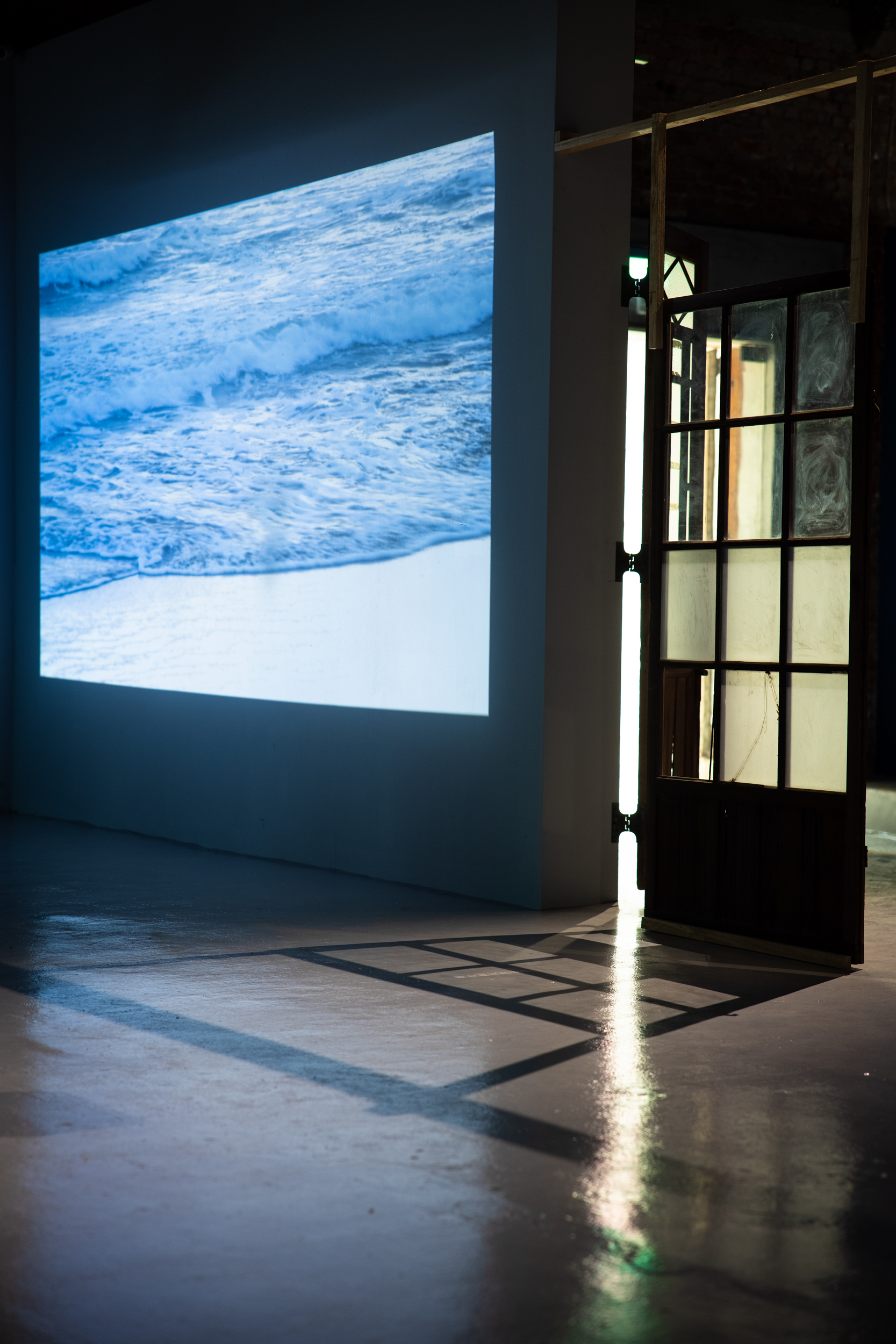
“You do not need to worry about what we said.” This statement is found in a clause of the Sinkang manuscripts, a collection of indigenous Siraya land transaction contracts that emerged after colonizers' arrival. It captures the fragility of their relations.
In this exhibition, the ocean serves as a metaphor. This exhibition stands as a point in time, much like on an unstable ship in the middle of a vast sea. On this ship, we gaze at the distant island—Taiwan's past. History itself resembles an island - elusive and far-off. Our sight of this island, much like the sea that separates us from it, is often unsteady.
As our eyes scan the horizon of years of Taiwan's history, we encounter a sea of accounts predominantly written by colonizers - the Dutch, Chinese, and Japanese. Taiwan's indigenous groups, without written scripts or historical writing traditions, relied on oral traditions to preserve their memory and past. These sounds, however, have largely been lost to time, leaving gaps in our understanding. As if without written characters, there would be no history.
In the early 18th century England, George Psalmanazar, a European author “became” the first Taiwanese indigenous people to write their own history. He fabricated his identity, a Formosan language and history through writing. The possession of a written language and the ability to record or create events, ideas, and knowledge is inherently a form of power.
Anthropologist Eric Wolf's "Europe and the People Without History" argues against the Eurocentric view that societies without writing are ahistorical.
In the context of southern Taiwan and indigenous Siraya, where 400 years ago Dutch rule marked the first European colonization in Taiwan/Formosa, we re-examine Eurocentric and Han-centric historical narratives, particularly focusing on the forms of expression in these historical traditions—writing. We pose the question: without writing, do we have history?
Through ocean, Chinese characters, contracts between colonisers and the colonised, and records from the Dutch to Japanese colonial periods, the exhibition aims to investigate the essence of written characters and language.
We ask, as Caribbean poet Derek Walcott did: "Where are your monuments, your battles, martyrs? Where is your tribal memory?"
03.10.2024–28.02.2025
A4, Soulangh Cultural Park, Tainan, Taiwan.
A4 臺灣臺南市蕭壠文化園區
The exhibition is part of the International Artist Residency Program at Soulangh Cultural Park in Tainan.
展覽是臺南蕭壠文化園區國際藝術進駐計劃的一部分。
Organiser: Cultural Affairs Bureau, Tainan City Government
主辦單位:臺南市政府文化局
organizer's website→
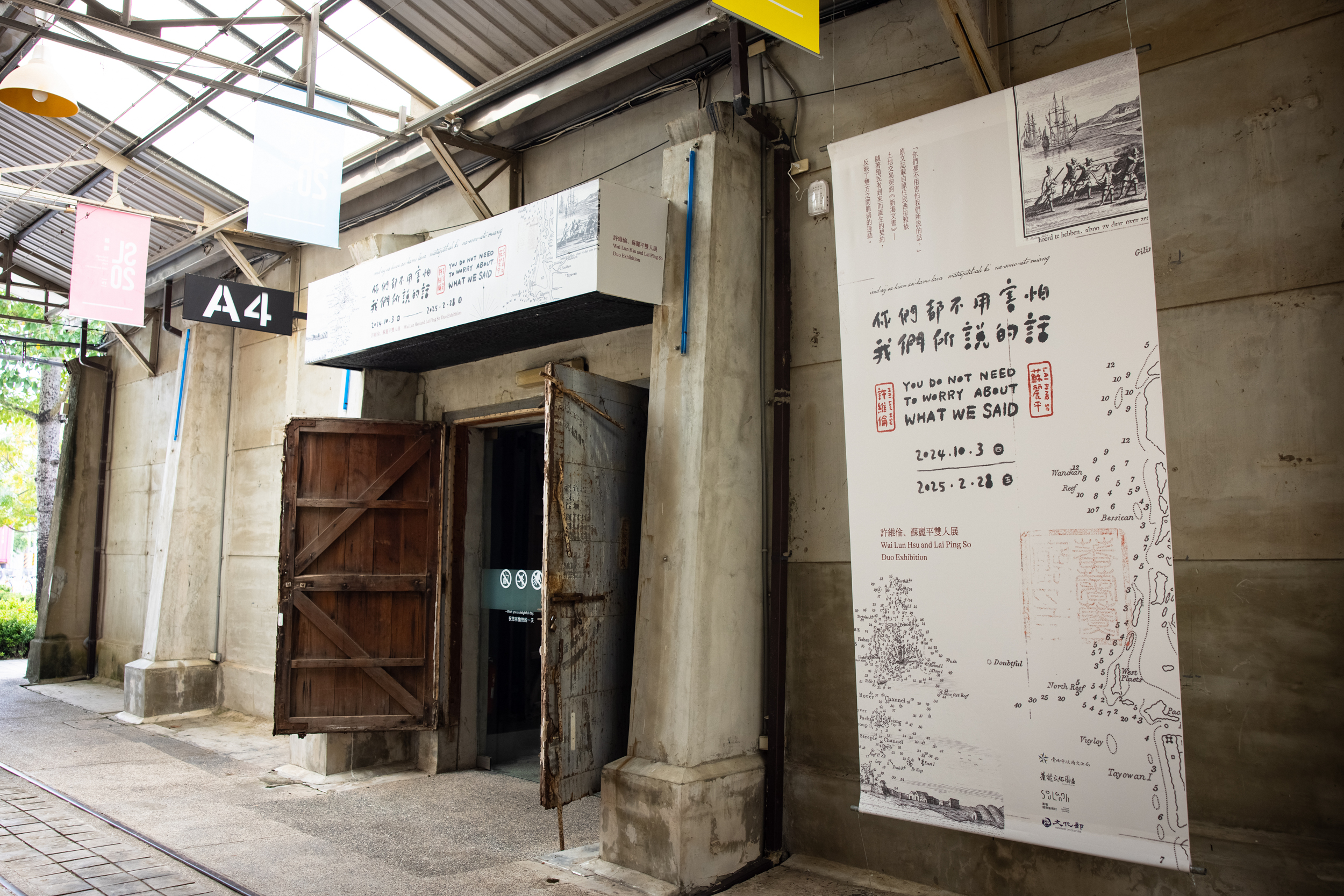

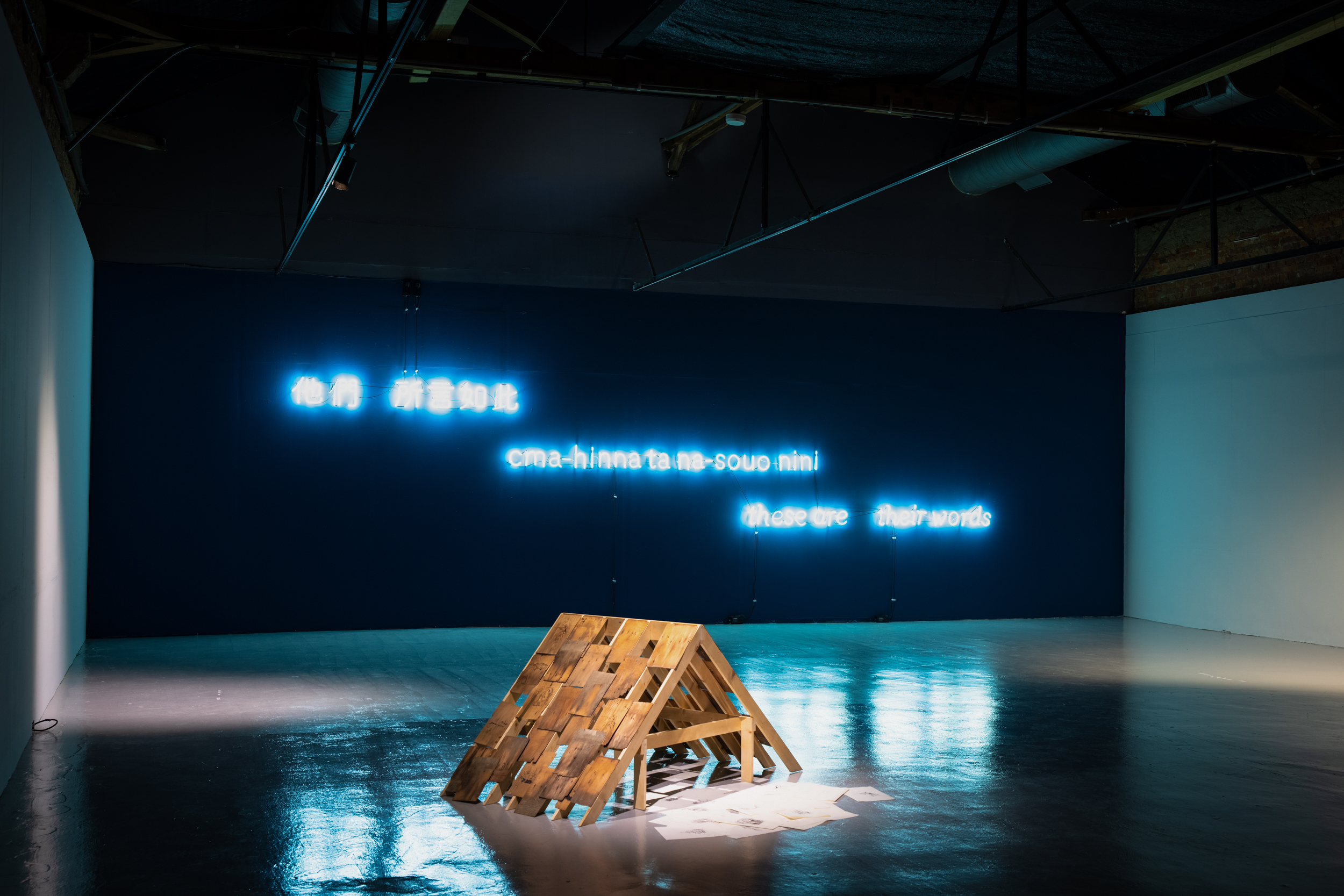
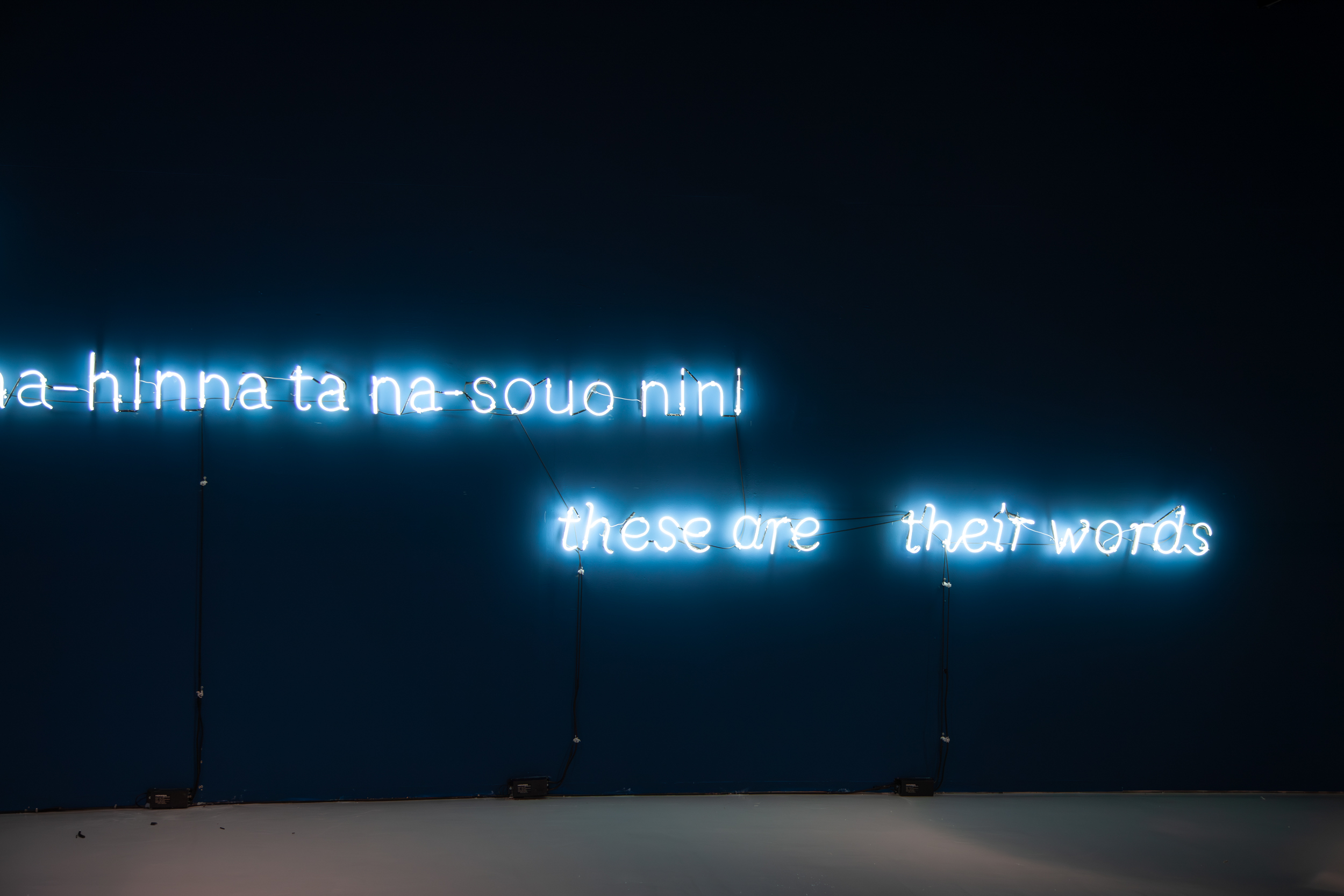
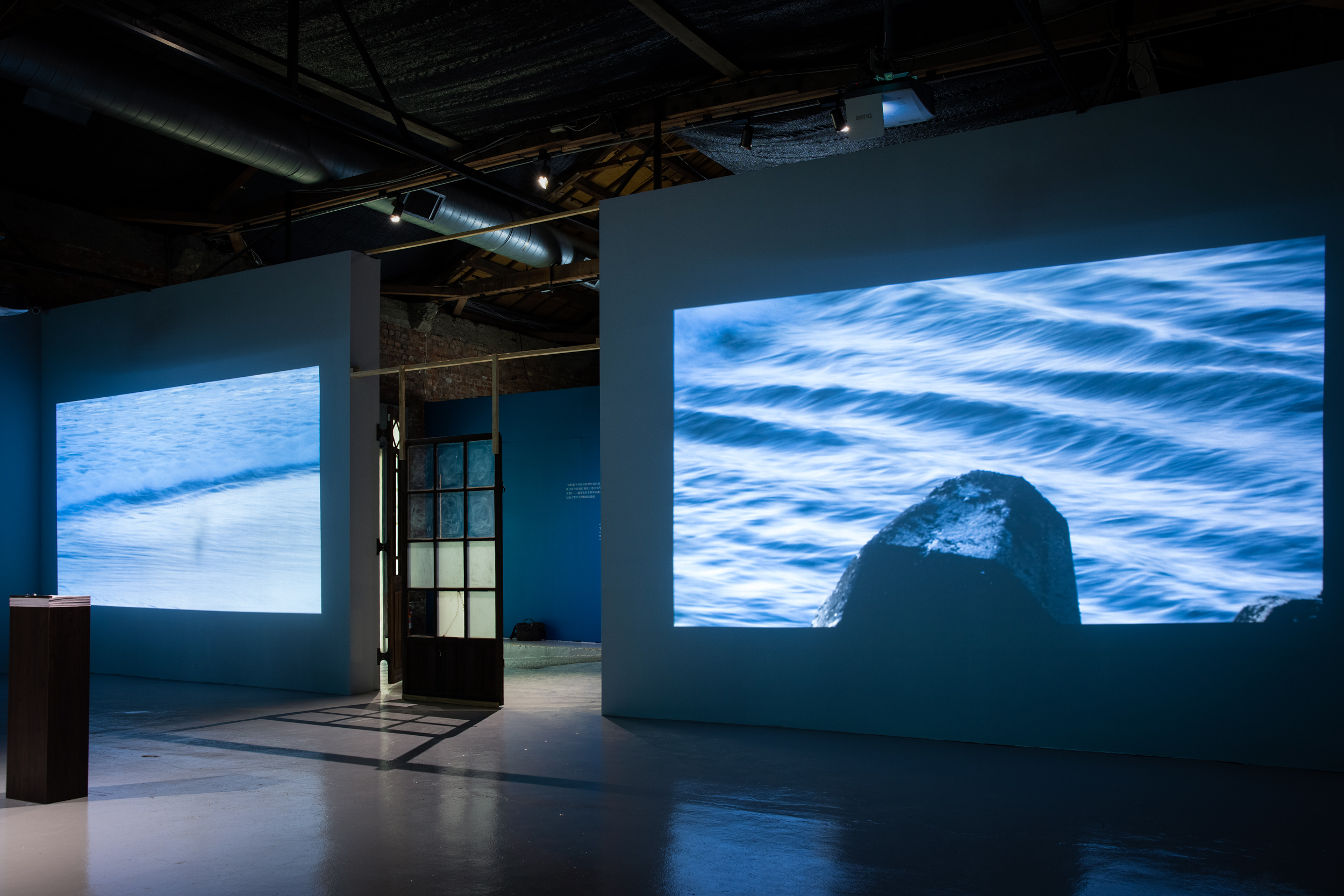
Exhibition views:
You do not need to worry about what we said (10/2024–04/2025),
Soulangh Artist Village, Tainan (TW)
Duo Exhibition of Wai Lun Hsu and Lai Ping So


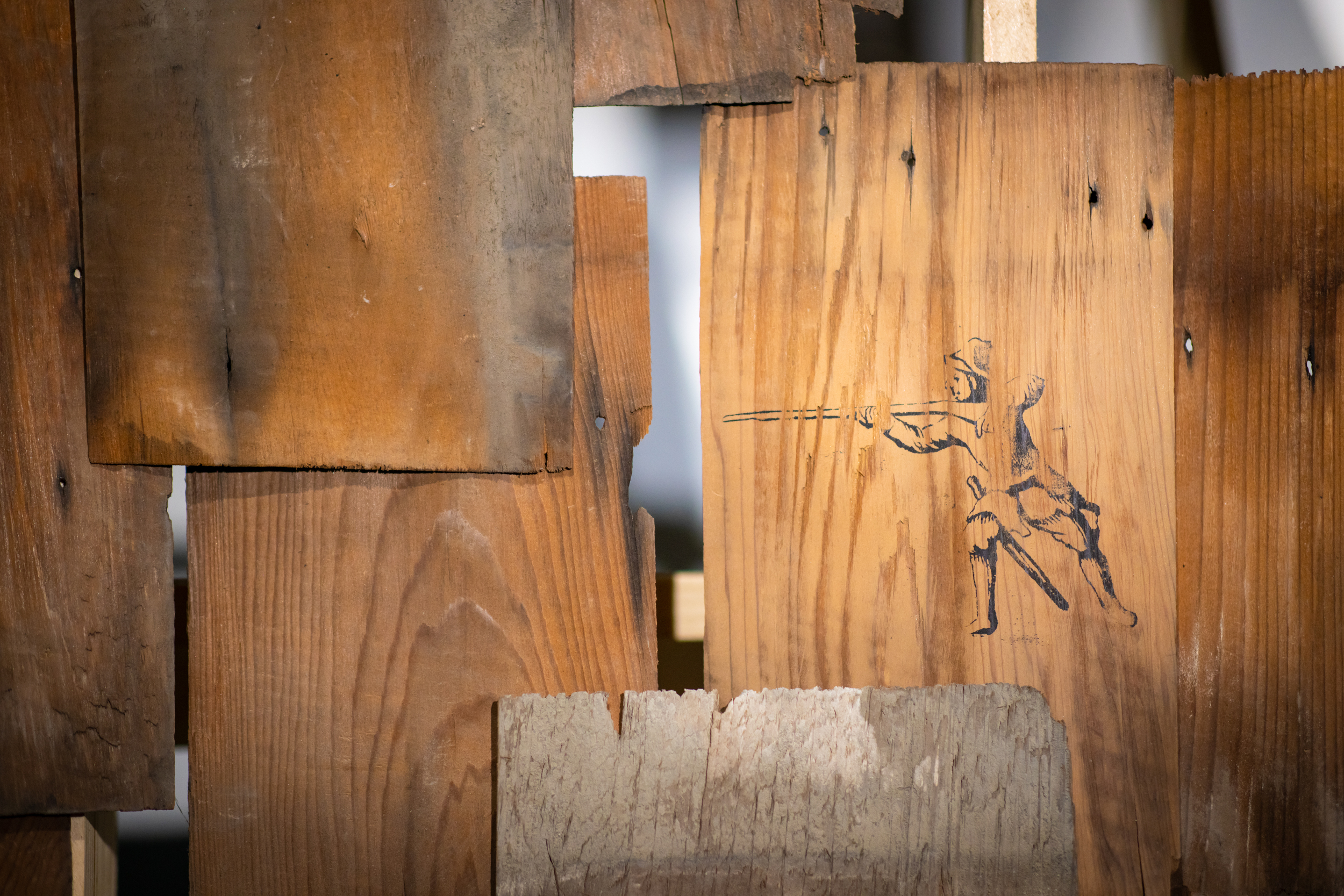

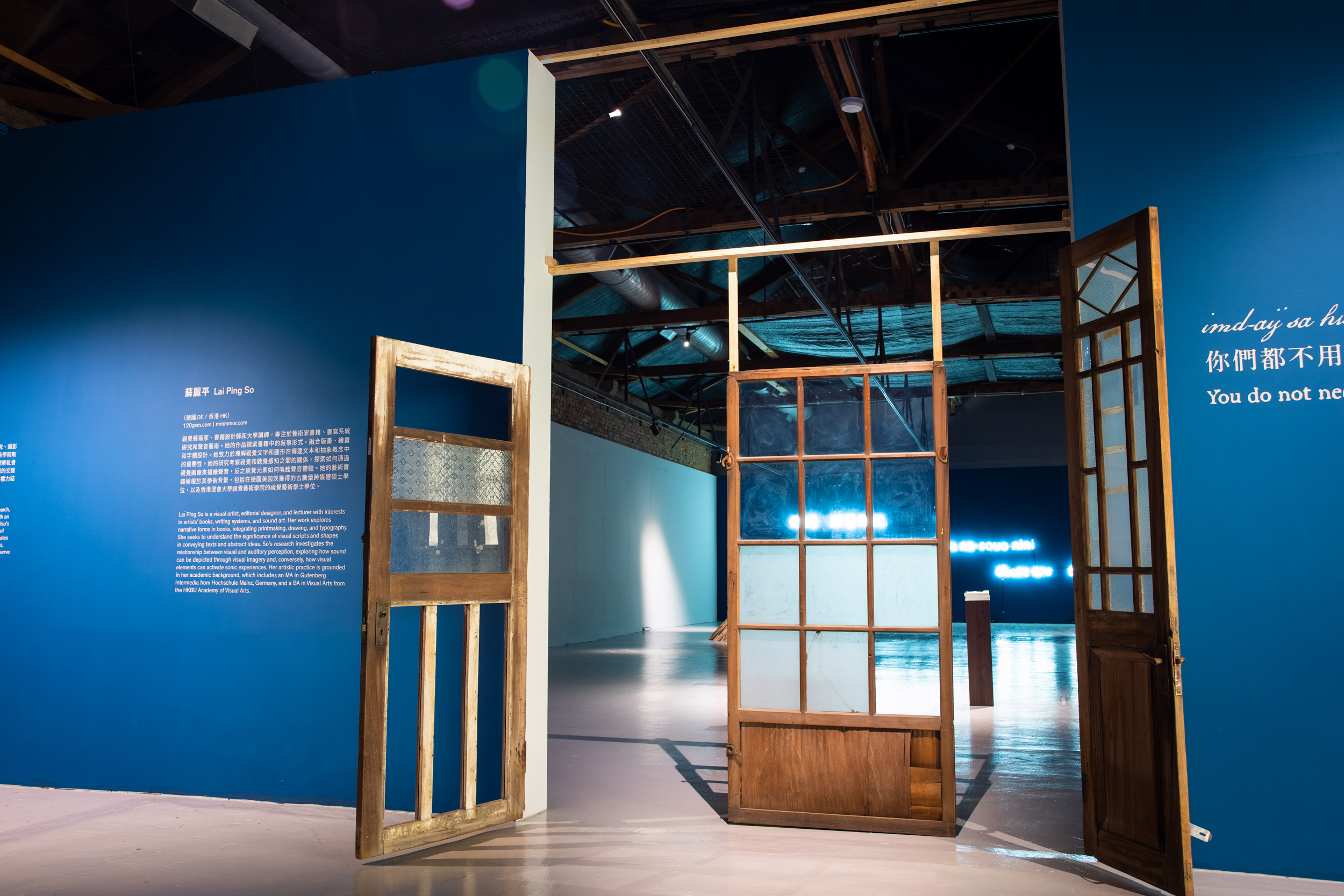


Duo Exhibition of Wai Lun Hsu, Lai Ping So
許維倫、蘇麗平雙人展
imd-aij sa hisou asi-kamo lava mataqutd-ali ki na-soow-ato miang
你們都不用害怕我們所說的話
You do not need to worry about what we said
03.10.2024–28.02.2025
A4, Soulangh Cultural Park, Tainan, Taiwan.
A4 臺灣臺南市蕭壠文化園區
The exhibition is part of the International Artist Residency Program at Soulangh Cultural Park in Tainan.
展覽是臺南蕭壠文化園區國際藝術進駐計劃的一部分。
Organiser: Cultural Affairs Bureau, Tainan City Government
主辦單位:臺南市政府文化局
「你們都不用害怕我們所說的話。」原文記載自原住民西拉雅族土地交易契約《新港文書》— 隨著殖民者到來而誕生的契約,反映了雙方之間脆弱的連結。
在這次展覽中,海洋是一個隱喻。觀看歷史,猶如站在海洋中不穩定的船隻上,遙遠地望著一座島嶼。歷史本身猶如一座島嶼 — 難以捉摸、遙遙遠望。我們對這個「歷史的島嶼」的視野,就像搖擺船上的視野一樣,常常是不穩定的。
當我們眺望臺灣歷史的地平線,閱覽大量由荷蘭人、中國人和日本人—殖民者所書寫的敘述之海,相比之下,臺灣原住民族,沒有自己的文字系統或書寫歷史的傳統,靠著口述傳統來保存他們的記憶和過去。然而,這些聲音隨著時間消逝,留下空缺的過去,彷彿不存在無符號書寫的歷史。
在18世紀早期的英國,喬治.撒瑪納札 — 一位歐洲作家「成為」了第一個臺灣「原住民」,為「原住民」寫下歷史。他虛構了身份、虛構了福爾摩沙人的語言和歷史;具備書寫文字,以及記錄或創造事件、思想和知識的能力,本質上彰顯出權力的形態。
人類學家Eric Wolf在《歐洲與沒有歷史的人》反駁歐洲中心觀點,將無書寫文字社會視為無歷史的。
400年前,臺灣南部成為荷蘭統治下台灣/福爾摩沙,殖民者與被殖民者首次相遇的地方。我們在南部的原住民西拉雅族的脈絡中,重新審視歐洲中心、漢文化中心的歷史敘事,尤其是這些歷史傳統表現形式——書寫。我們提出疑問:沒有文字,我們是否有歷史?
藉著海洋、漢字、殖民者與被殖民者的契約,以及從荷蘭到日本殖民時期的記錄,展覽重讀過去、探討書寫文字、語言的本質。
叩問,正如加勒比詩人德拉.沃科特之詩:「你們的紀念碑、你們的戰役、烈士在哪裡?你們的部落記憶在哪裡?」
許維倫、蘇麗平雙人展
imd-aij sa hisou asi-kamo lava mataqutd-ali ki na-soow-ato miang
你們都不用害怕我們所說的話
You do not need to worry about what we said
03.10.2024–28.02.2025
A4, Soulangh Cultural Park, Tainan, Taiwan.
A4 臺灣臺南市蕭壠文化園區
The exhibition is part of the International Artist Residency Program at Soulangh Cultural Park in Tainan.
展覽是臺南蕭壠文化園區國際藝術進駐計劃的一部分。
Organiser: Cultural Affairs Bureau, Tainan City Government
主辦單位:臺南市政府文化局
「你們都不用害怕我們所說的話。」原文記載自原住民西拉雅族土地交易契約《新港文書》— 隨著殖民者到來而誕生的契約,反映了雙方之間脆弱的連結。
在這次展覽中,海洋是一個隱喻。觀看歷史,猶如站在海洋中不穩定的船隻上,遙遠地望著一座島嶼。歷史本身猶如一座島嶼 — 難以捉摸、遙遙遠望。我們對這個「歷史的島嶼」的視野,就像搖擺船上的視野一樣,常常是不穩定的。
當我們眺望臺灣歷史的地平線,閱覽大量由荷蘭人、中國人和日本人—殖民者所書寫的敘述之海,相比之下,臺灣原住民族,沒有自己的文字系統或書寫歷史的傳統,靠著口述傳統來保存他們的記憶和過去。然而,這些聲音隨著時間消逝,留下空缺的過去,彷彿不存在無符號書寫的歷史。
在18世紀早期的英國,喬治.撒瑪納札 — 一位歐洲作家「成為」了第一個臺灣「原住民」,為「原住民」寫下歷史。他虛構了身份、虛構了福爾摩沙人的語言和歷史;具備書寫文字,以及記錄或創造事件、思想和知識的能力,本質上彰顯出權力的形態。
人類學家Eric Wolf在《歐洲與沒有歷史的人》反駁歐洲中心觀點,將無書寫文字社會視為無歷史的。
400年前,臺灣南部成為荷蘭統治下台灣/福爾摩沙,殖民者與被殖民者首次相遇的地方。我們在南部的原住民西拉雅族的脈絡中,重新審視歐洲中心、漢文化中心的歷史敘事,尤其是這些歷史傳統表現形式——書寫。我們提出疑問:沒有文字,我們是否有歷史?
藉著海洋、漢字、殖民者與被殖民者的契約,以及從荷蘭到日本殖民時期的記錄,展覽重讀過去、探討書寫文字、語言的本質。
叩問,正如加勒比詩人德拉.沃科特之詩:「你們的紀念碑、你們的戰役、烈士在哪裡?你們的部落記憶在哪裡?」

